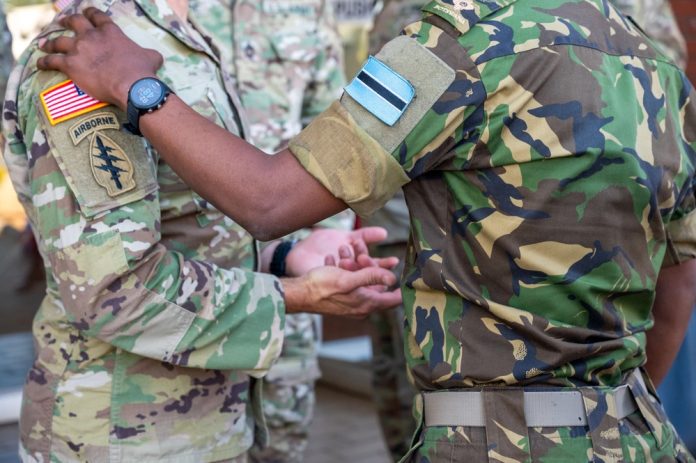Between June 18th and 21st, the United States and Botswana finalized plans for the joint military exercise ‘Southern Accord 2024′ (SA24), scheduled to take place from August 5th to August 16th. From June 24th to 26th in Botswana, the two nations co-hosted the African Chiefs of Defence Conference, marking the conference’s first time in Africa. Approximately 40 African military leaders, along with Admiral Rob Bauer, Chairman of NATO’s Military Committee, attended. On June 27th, the US transferred a C-130 Hercules transport aircraft to the Botswana Defence Forces (BDF) through the Excess Defense Articles program.
The effort to strengthen defense and cooperation ties in Africa coincides with the United States’ recent reduction of troops from Chad in late April. Additionally, General Michael Langley of the United States Africa Command (AFRICOM) noted that the US is ‘on-track’ to complete its withdrawal from Niger’s Airbase 201 by September 15th, at the Nigerien government’s request.
What You Need to Know
According to a statement on the US Army website, “SA24 is a bi-annual joint exercise sponsored by US Africa Command (AFRICOM) and led by the US Army Southern European Task Force, Africa (SETAF-AF). It brings together US Army personnel and BDF counterparts to conduct a variety of training, including humanitarian assistance, disaster relief, peacekeeping, and aeromedical evacuation. The exercise aims to enhance multinational military capabilities and interoperability.”
While the US has maintained relations with Botswana since its independence from Britain in 1966, the country has become increasingly significant amid the US’s reduced presence in the Sahel due to rising terrorism threats. As a result of their longstanding relationship, Botswana has seen BDF officers and non-commissioned officers trained at US military education institutions. Additionally, since 2008, the North Carolina-Botswana partnership under the National Guard State Partnership Program has focused on developing Botswana’s air, ground, and special forces, as well as peacekeeping operations and emergency management.
Through the Excess Defense Articles program, the US facilitates the transfer of excess defense equipment to foreign governments or international organizations to modernize partner forces.
According to Howard Van Kranken, US Ambassador to Botswana, “In this symbolic transfer of the C-130H aircraft, we reaffirm our shared commitment to security and stability in the region.” He continued, “This aircraft not only represents advanced technological capability but also stands as a testament to the enduring friendship between our nations.”
Focused on the ‘3Ds’ of development, diplomacy, and defense partnerships, AFRICOM’s African Chiefs of Defence Conference convened under the theme “Together on the Rampart: Expanding Cooperation, Sharing Values,” with ‘rampart’ defined as a protective wall or barrier.
So, What Now?
It’s evident that the United States has begun to intensify its efforts in response to Russia and China’s continued endeavours to solidify partnerships and alliances in Africa.
The use of ‘rampart’ in the conference’s theme is particularly noteworthy, given Botswana’s proximity to South Africa, a traditional ally of Russia and China. Despite recent changes in government, South Africa has pledged to maintain its foreign policy positions. General Langley emphasized in a press briefing prior to the conference that Africa faces complex threats, including disinformation campaigns from Russia, and highlighted Russia’s “Africa Corps” initiative aiming to match US efforts in security force assistance, state partnership programs, and joint exercises with African countries. He also noted China’s active presence on the continent through initiatives like the Belt and Road Initiative and establishment of a naval base in Djibouti, alongside engagements in coastal West Africa.
The resurgence of great power competition in Africa has impacted civilian safety, particularly in the Sahel where the US recently lost its airbase used for drone strikes against Islamic terror groups. Taking advantage of this void, Russia has deployed elements of its Wagner Group, Africa Corps, and Bear Jedi Corps to Mali, Niger, the Central African Republic, Sudan, and Burkina Faso.

